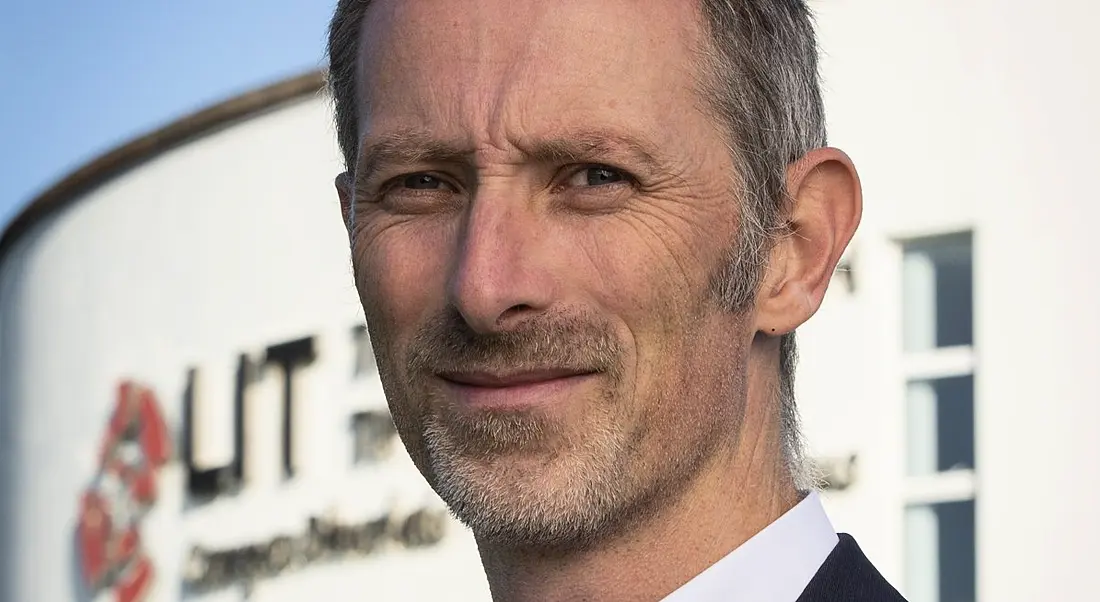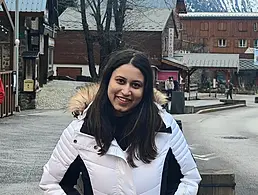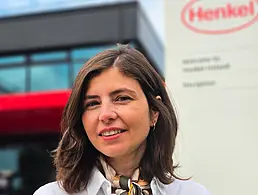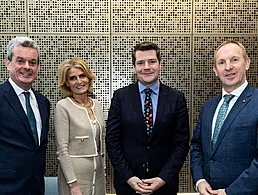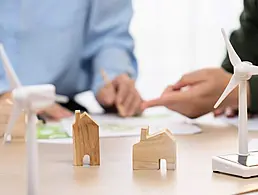Through his role as development manager at Limerick Institute of Technology, Seamus Hoyne hopes to help Ireland pivot away from fossil fuels.
Having originally trained as a mechanical engineer, Seamus Hoyne now works with teams across Europe to help drive forward energy innovation in a bid to address the climate crisis. He does this as part of his role as development and public engagement manager at Limerick Institute of Technology – a position he took up in 2017.
Here, Hoyne discusses how he got into this area, what his current job entails, and the challenges in financing energy projects.
‘I had to quickly develop an interest in economics and financing and an understanding of how to sell the energy transition agenda to people’
– SEAMUS HOYNE
What experiences led you to the role you have now?
I am a mechanical engineer who did a master’s in renewable energy, and then another master’s in energy management.
I then set up a company called the Tipperary Energy Agency in 1998. I moved into R&D in 2007, managing major research projects in Tipperary Institute.
Can you tell us about the research you’re currently working on?
My core research focus at the moment is figuring out new ways to stimulate investment in energy projects. I work with public bodies, companies and energy agencies across Europe and try to figure out new ways to access finance available from banks, investors and other funds so we can transform Ireland and Europe’s energy systems away from fossil fuels.
What first stirred your interest in this area?
As an engineer, I understand that the technology is not really the problem – we can build, design and create new technology and systems to solve many of our energy problems.
However, we need to convince people to invest in this new technology. We also need to make sure that money currently invested in projects producing carbon dioxide and harming the planet is now invested in those that reduce carbon dioxide emissions and address climate change.
If there is such a thing, can you describe a typical day for you?
As my job involves completing work and research across a number of projects. I normally break my day down into blocks of work. I deal with emails and communications with our many EU research partners. Then, I might work on a specific research task where I have to process or analyse different investment data for energy projects and make assessments.
I can work on writing research proposals. Recently, I spent a lot of time writing a proposal to decarbonise the energy supply of five islands across Europe. I also frequently will have online meetings with project partners, other researchers or companies we are working with.
What skills and tools do you use on a daily basis?
As I’m a manager, I do a lot of project management tasks every day. I look at budgets, solving problems for the research team that works with me, planning future work and recruiting new staff.
I have to do a lot of analysis of numbers and data, and I have to communicate to a lot of different people and different decision-makers.
What applications do you foresee for this research?
I hope that my work will be able to support – particularly in the public sector – being able to completely pivot from using fossil fuels to becoming leaders in the use of renewable energy, and that Ireland can make a major contribution to addressing climate change.
#FridaysForFuture #ClimateStrike #SchoolStrike4climate thanks to all the youth of Ireland….gr8 show pic.twitter.com/CL5Istlb7x
— Seamus Hoyne (@shoyne) October 30, 2019
Are there any common misconceptions about this area of research? How would you address them?
Many people don’t understand the economics and financing needs for energy systems and also that investing in energy efficiency and renewable energy has many other benefits, such as improved comfort in our homes, healthy buildings and better air quality.
Those of us researching and working in the energy field need to be able to communicate these aspects of our work better to people.
When you first started work as a researcher, what were you most surprised to learn was important in the role?
I thought I would be designing new technologies and solutions but soon discovered that wasn’t the problem. I had to quickly develop an interest in economics and financing and an understanding of how to sell the energy transition agenda to people.
What do you enjoy most about your career in research?
As much of my work is related to EU-funded research, I get to work with amazing people from across Europe who are working on really interesting solutions to our climate change crisis. I love feeling that we are making a difference and transforming society.
